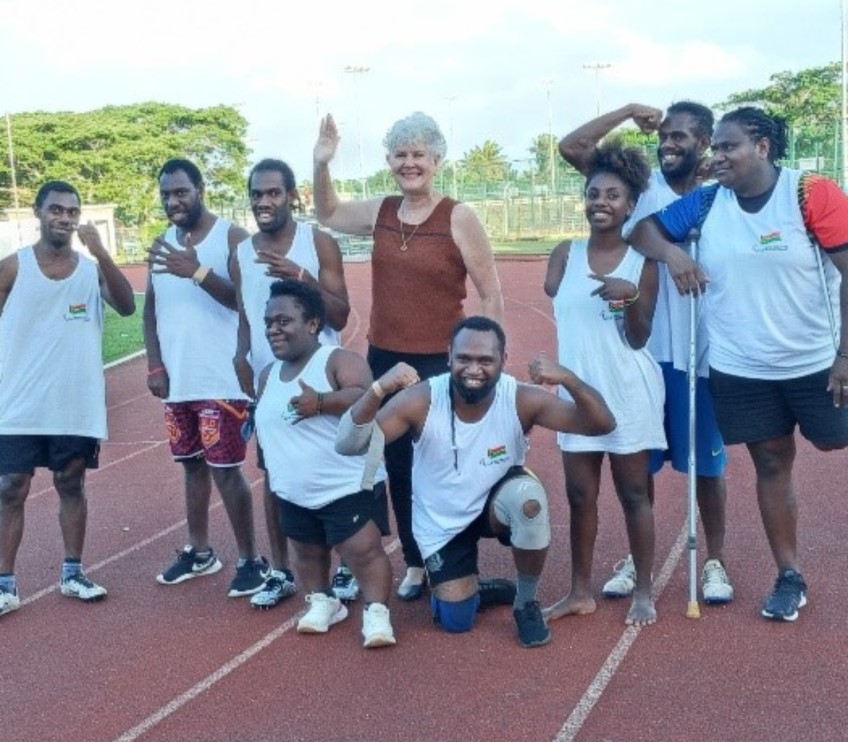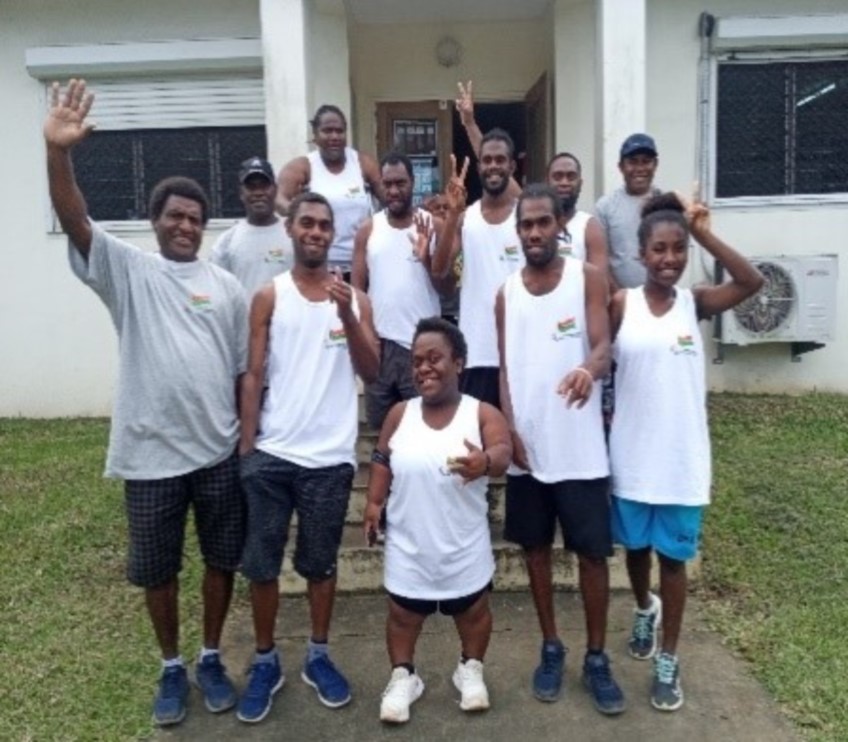PacificAus Sports aims to strengthen connections between Australia and the Pacific region. The program’s objectives are to: 1) develop pathways for professional Pacific teams and established athletes to play in high level Australian sports competitions; 2) support Australian professional sports codes to increase their presence and participation in the Pacific; and 3) develop pathways for emerging athletes from the region to benefit from high performance coaching, training and competition.
“The very strong support of the team from the Australian High Commission here in Port Vila and the Oceania Paralympic Committee working strongly with the Australian Government, Department of Foreign Affairs & Trade (DFAT) and the AOC has enabled us to access this funding to prepare us for national and international competitions. We have the National Games in Malekula in November this year and next year in 2022, the Commonwealth Games in the United Kingdom in Birmingham in September,” explained Margaret Macfarlane, VPC President.
Mary Estelle Mahuk, VPC Board Member and Programs Manager explained, “We have a program in place to identify new talent while still providing on-going training for our more experienced athletes. We are very excited about the potential of Rodney Benben, Rodney Talo (running 12.13 seconds for 100 metres!), Daniel Matal and Margaret Sahi. Margaret is a Short Stature athlete with great potential in javelin and shot put.”
VPC’s Head Coach Deni Kalenga added “The Australian Government PacificAus Sports Program funding also allows us to continue to up-skill our coaches like Timothy Loughman and Stanley Toa. Chris Nunn, High Performance Coach in Australia will join us via Zoom for a coaching session. Our parathletes too have a VPC Coaches Career Path. Ken Kahu is showing great promise as a Javelin coach.”
It’s not just about sports skills. With the funding, VPC has secured the services of Ministry of Health nutritionist Anna Silas from Vila Central Hospital to talk about healthy food and the importance to athletes of a balanced, healthy diet. Catering for the camp attendees of course is all island food. No white rice, no white bread, no sugary food, only good island kakae from the local markets!
The new para talent being identified and supported by DFAT means a strong team ready to compete, raise awareness of issues faced by people living with a disability and of course, the good health outcomes for anyone participating in sport!




